How to write a job-winning nurse resume
As a nurse, you're the unsung hero of healthcare, providing compassionate care and making a difference in the lives of patients.
But when it comes to landing your dream nursing job, a stellar resume is your prescription for success.
In this guide, we'll equip you with all the essential tools and strategies to craft a standout nurse resume that will make recruiters do a double take.
From showcasing your clinical skills to highlighting your bedside manner, we'll guide you through every step of the process.
Keep reading and learn how to:
- Use proper formatting to create the ideal reverse-chronological resume
- Write an authentic summary that represents your nursing values
- Include hard and soft skills to round out your resume
- Prioritize your relevant work experience
- List your complete education and licensing information
- Add extra sections to gain a competitive edge
1. Use proper formatting for your nurse resume
When writing a nursing resume, you want the primary focus to be on your experience working directly with patients and in the field. As such, the ideal resume format is the reverse-chronological resume.
Reverse-chronological resumes place heavy emphasis on work experience, making it the largest and most prominent element of the document. Your most recent position will be listed first, followed in reverse-chronological order by your older positions.
A reverse-chronological resume should always contain the following sections:
- Name and contact information
- Resume summary or objective
- Work experience
- Education
- Skills
These five basic components are the building blocks for this resume format. Typically, the majority of the body of your resume will be reserved for work experience, with education and skills divvying up the remaining space in a side column.
There are also alternative resume formats known as functional and hybrid resumes. Functional resumes place greater emphasis on education and skills, while hybrid resumes combine elements of both functional and reverse-chronological formats.
Both the functional and the hybrid resumes are well suited for candidates with less work experience or large gaps in their resumes.
2. Write an authentic resume summary that represents your nursing values
As a nurse, your demeanor matters nearly as much as your technical medical skills. The resume summary is the perfect opportunity to show off your personality and share the core values that guide your nursing practice.
Additionally, your resume summary should highlight your biggest strengths and skills as a nurse. Here is an example of a weak nursing resume summary, followed by its correction and explanation:
Incorrect nursing resume summary example:
Nurse with an interest in working specifically with pediatric patients. Completed a nursing practicum at a local hospital, where I learned to carry out daily care tasks and manage patient records.
What's wrong with this example? This example is far too simple and non-specific. When writing your resume summary as a nurse, you want to provide quantifiable information such as how many years of experience you have or specific responsibilities you carried out. Additionally, resume summaries are typically written in 3rd person.
Corrected nursing resume summary example:
Licensed RN Nurse with 2 years of experience working in pediatric facilities. Specialized in pediatric care and support. Completed a nursing practicum at Saints Memorial Hospital, with responsibilities such as providing daily care to long-term patients, assisting in the management of patient records, and helping with patient transfers.
Why is this better? This corrected example offers an exact number when speaking about years of experience, as well as more context around the pediatric specialization. The nursing practicum is still mentioned, but in greater detail in regards to which facility and what responsibilities were given to the applicant.
3. Include hard and soft skills to round out your nursing resume
As a nurse, you gain many medical skills that are highly technical and specialized. However, you also interact with patients more than most other healthcare providers, serving as mid-way points between doctors and patients.
With these dual responsibilities in mind, it is crucial to include both hard and soft skills on your resume. Hard skills are your more technical skills, such as operating an X-Ray machine. Comparatively, soft skills are your interpersonal abilities, such as communication and teamwork.
Best hard skills to include on your nursing resume
- Checking and monitoring vital signs
- CPR and First Aid
- Urgent and emergency care
- Advanced cardiovascular life support
- Patient care
- Telemetry (or other specialized machinery skills)
- Record and bookkeeping
- EHR (Electronic Medical Record) Proficiency
- Patient and family education
- Administering injections and medications
Best soft skills for your nursing resume
- Team communication
- Collaboration
- Active listening
- Clear verbal communication
- Flexibility and adaptability
- Critical thinking
- Respectfulness
- Empathy
- Patient advocacy
- Time management
4. Prioritize your relevant work experience
If you are using the reverse-chronological resume format, you need to prioritize your most relevant work experience above other jobs.
Chances are, you likely held part-time or temporary positions — such as serving or retail — while working your way through nursing school. Including these jobs can help to show your motivation and work ethic, but should not be the focus of your resume.
Even if you only have one relevant work experience to highlight, you can make the most out of it by focusing on your key responsibilities and accomplishments within the position.
As you write out your work experience descriptions, make sure to include quantifiable information and detailed bullet points listing out your responsibilities.
Example of a well-crafted work experience entry on a nursing resume
RN Nurse – Pediatric Unit | Saints Memorial Hospital
Shelby, NC | August 2019 to September 2021
- Delivered acute nursing care for pediatric patients, including newborn babies, infants, and adolescents.
- Earned praise for overtime work spent coordinating events for the pediatric unit to help improve the quality of life of the patients.
- Administered treatment and health exams to chronically ill pediatric patients.
5. List your complete education and licensing information
In the world of nursing, education is the solid foundation upon which your skills and expertise are built. As a nurse, your academic achievements and qualifications hold significant value, demonstrating your dedication to learning and your commitment to delivering exceptional patient care.
Including your education on your nurse resume not only showcases your level of knowledge and expertise but also instills confidence in potential employers.
As a nurse, there are two key pieces of information your education section needs to contain:
1. Where you went to school
2. When you earned your license
These can either both be listed in the education section, or you can create a dedicated certifications section for your licensing information. Separate sections are ideal when you have multiple degrees and certifications – otherwise, fitting them into one section is perfectly fine.
Example of a well-formatted education section on a nursing resume:
Education
- B.S. in Nursing | Appalachian State University
- Boone, NC | Graduate May 2014
Certifications
- RN State of NC – The North Carolina Board of Nursing
- Certified Registered Nurse Anesthetists (CRNA) – The American Association of Nurse Anesthetists

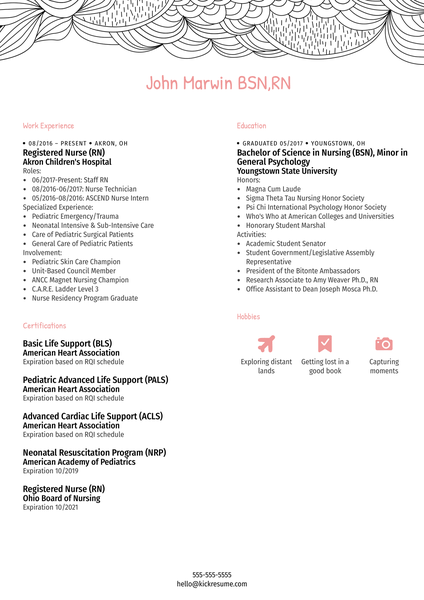

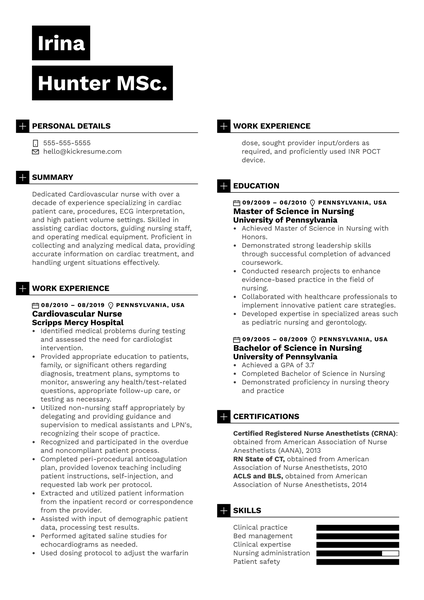
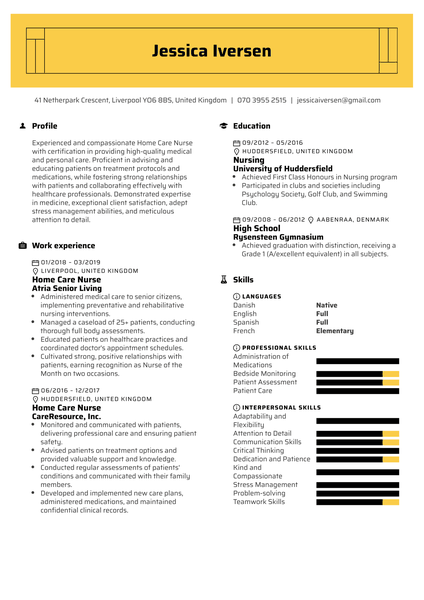
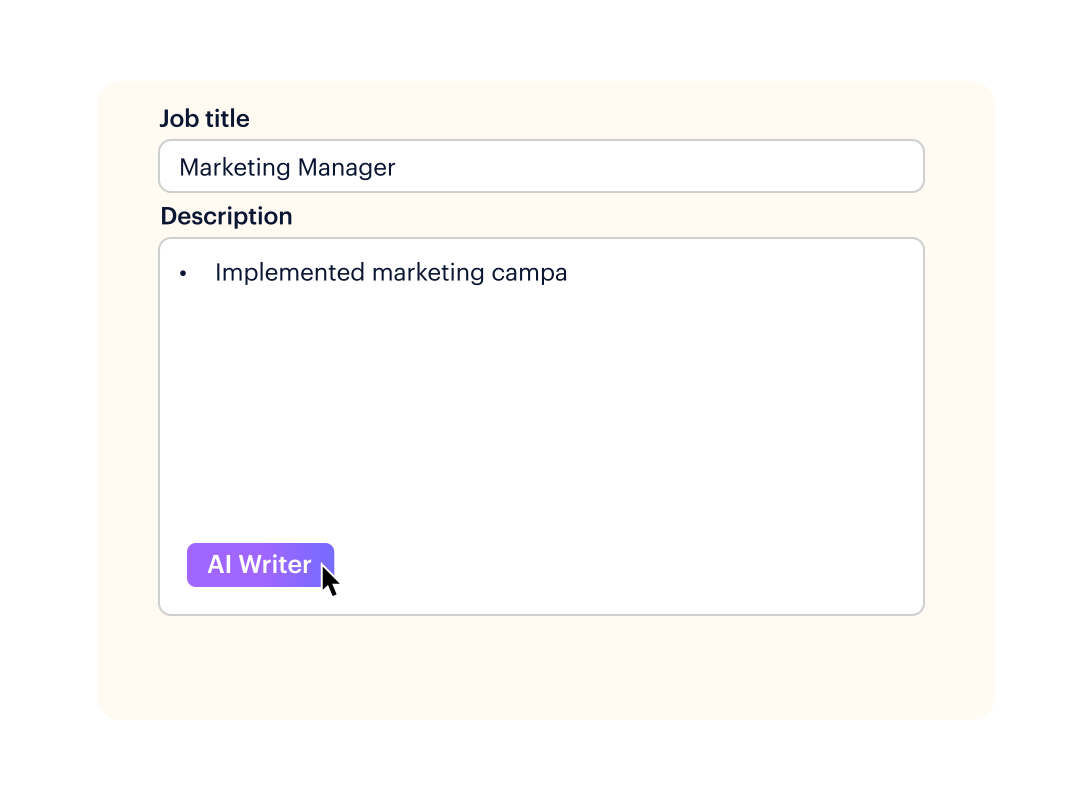


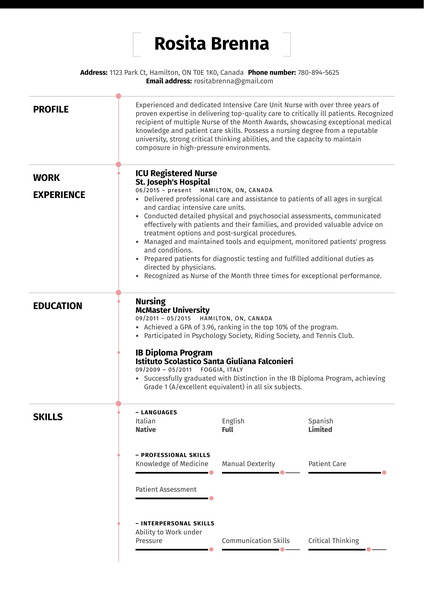

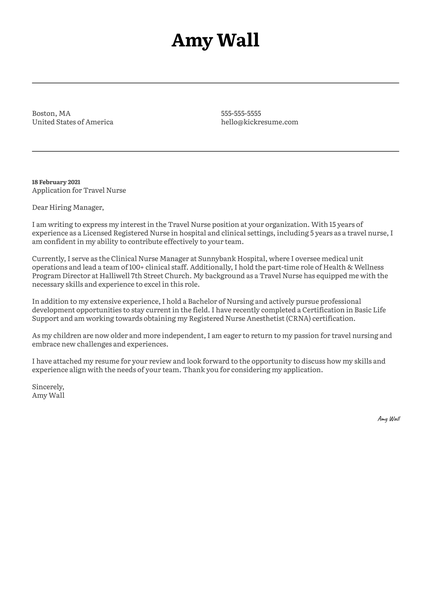
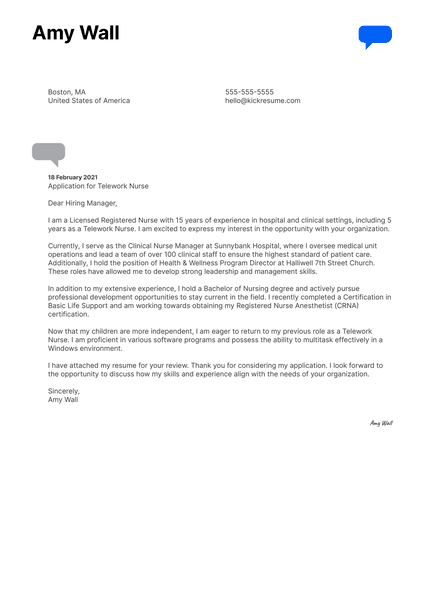
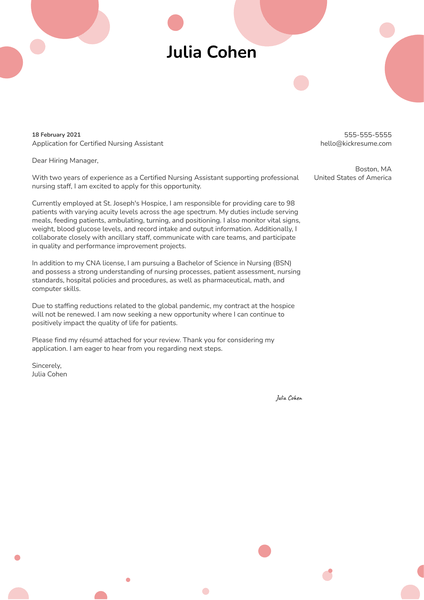
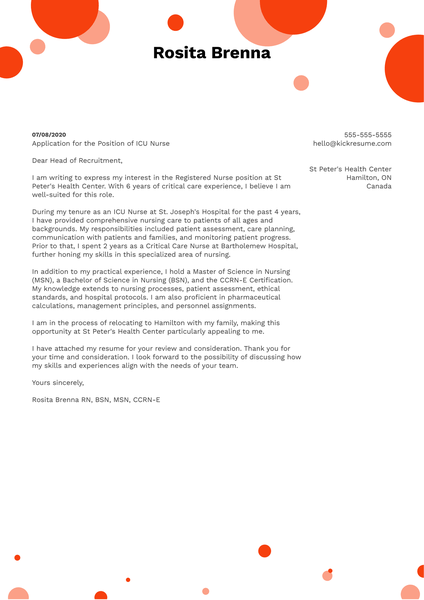
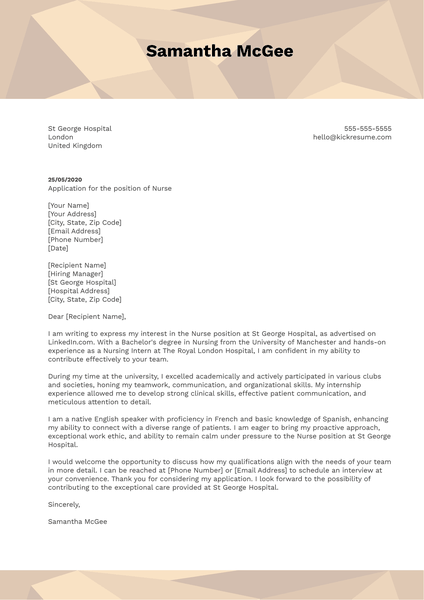
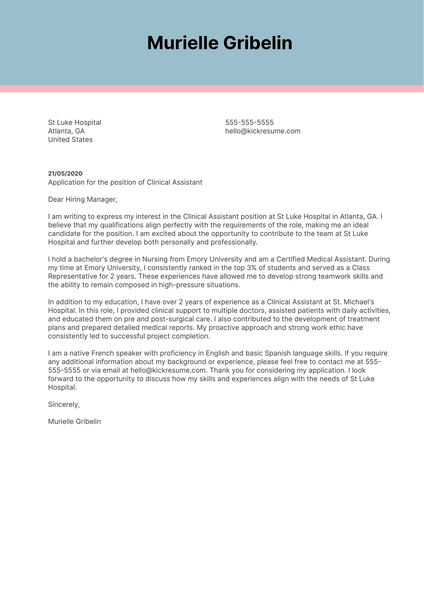
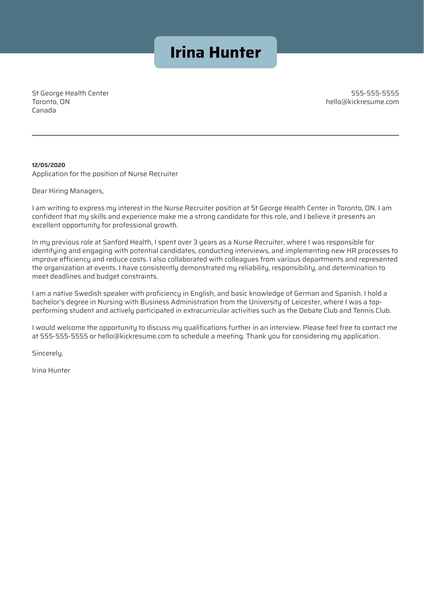

![How to Write a Professional Resume Summary? [+Examples]](https://d2xe0iugdha6pz.cloudfront.net/article-small-images/i-Profile.svg)
![How to Put Your Education on a Resume? [+Examples]](https://d2xe0iugdha6pz.cloudfront.net/article-small-images/i-Collage-Universities.svg)
![How to Describe Your Work Experience on a Resume? [+Examples]](https://d2xe0iugdha6pz.cloudfront.net/article-small-images/Experience.svg)


